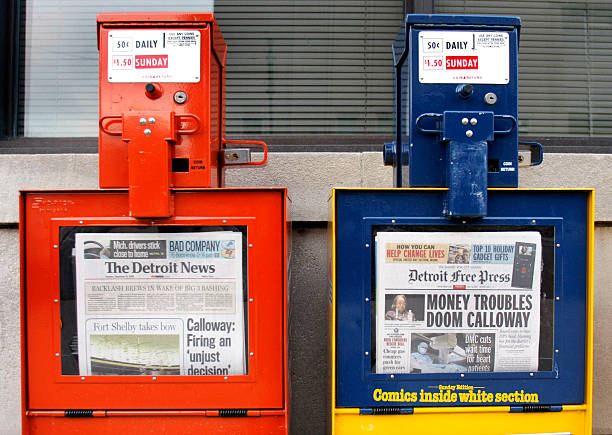A batch of Gannett local newspapers announced the end of Saturday newspaper home delivery. According to the largest U.S. newspaper publisher, “most Gannett Co. newspapers” will end home delivery on Saturdays. To be clear, the publisher says the move is in response to “the ongoing dominance of digital news consumption.”
Change will come in “the coming months”, according to the company. One example is The Tennessean. That Nashville based paper promises a “full digital replica” of the Saturday newspaper will be available online. Furthermore, it will include local news, advertising, comics and puzzles.
“The Tennessean is by far the state’s largest and most comprehensive news organization and that’s not changing said. We all know the way our community consumes news continues to evolve and, as with any business, we’ll continue to evolve to best meet those needs.”
Tennessean Vice President and Editor Michael A. Anastasi
The Saturday digital version is called an “E-edition”. Older readers will enjoy the option to change text size. In addition, seniors can clip and share articles. Furthermore, Tennessean subscribers will have access to Gannett’s local papers nationwide. Above all, that is a major benefit given the breadth of markets included coast to coast. Furthermore, Tennessean delivery times do not change the rest of the week.
Home Delivery Experiments Upset Routines
Gannett has experimented with reducing home delivery since at least 2008. In that year, the firm’s Detroit newspapers switched to home delivery three days a week. Certainly, the reassurances echo today’s announcement: a promise of expanded online offerings.
In 2009, the Detroit Free Press and Detroit News started Thursday, Friday and Sunday home delivery.

The Wall Street Journal reported that the end of Detroit home delivery touched on “many forces now upsetting our routines.”
“I recognize that this will be disruptive to older citizens,” says David Hunke, publisher of the Free Press at the time. But, he adds, “I can’t drive the paper to your home every day and maintain this business model.”

The Journal told the tale of older readers who made a daily ritual of reading obituaries with their coffee. Funeral directors were afraid of the word not getting out as newspapers phase out.



